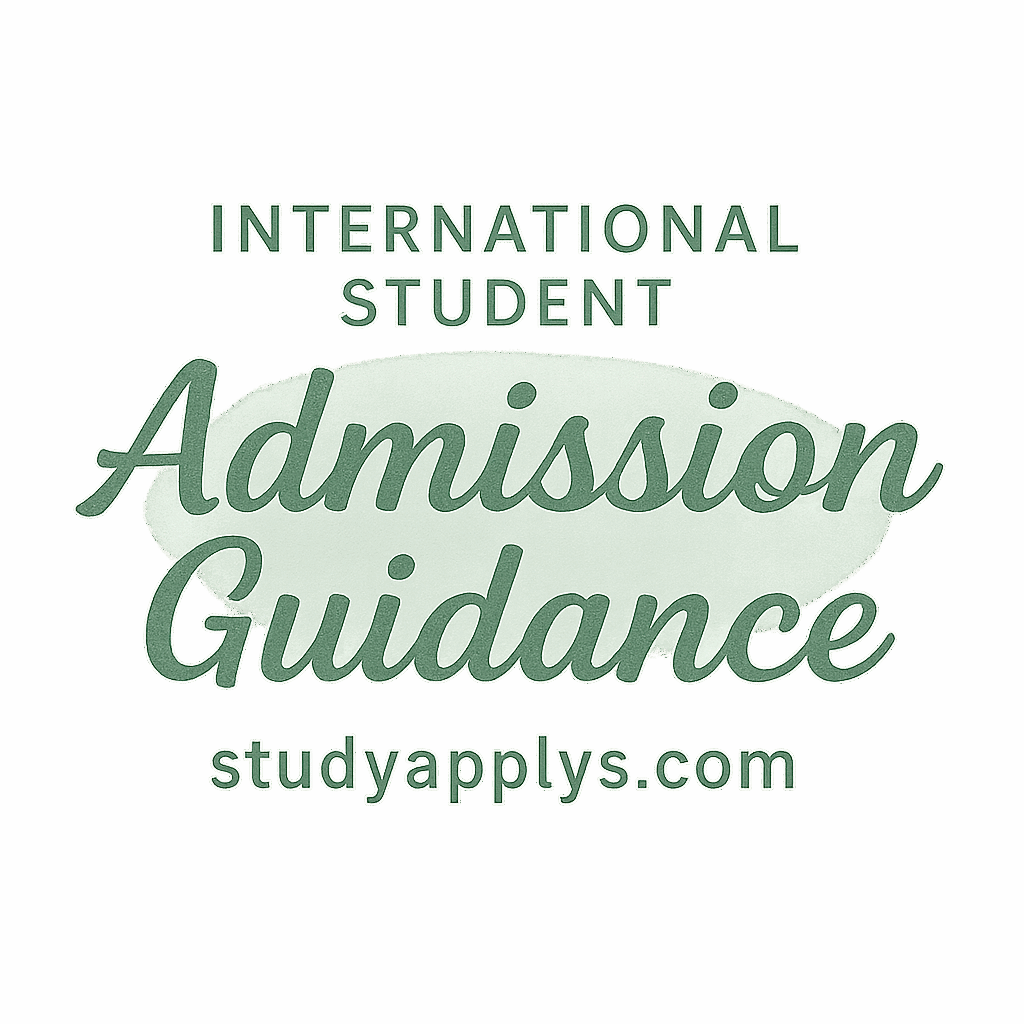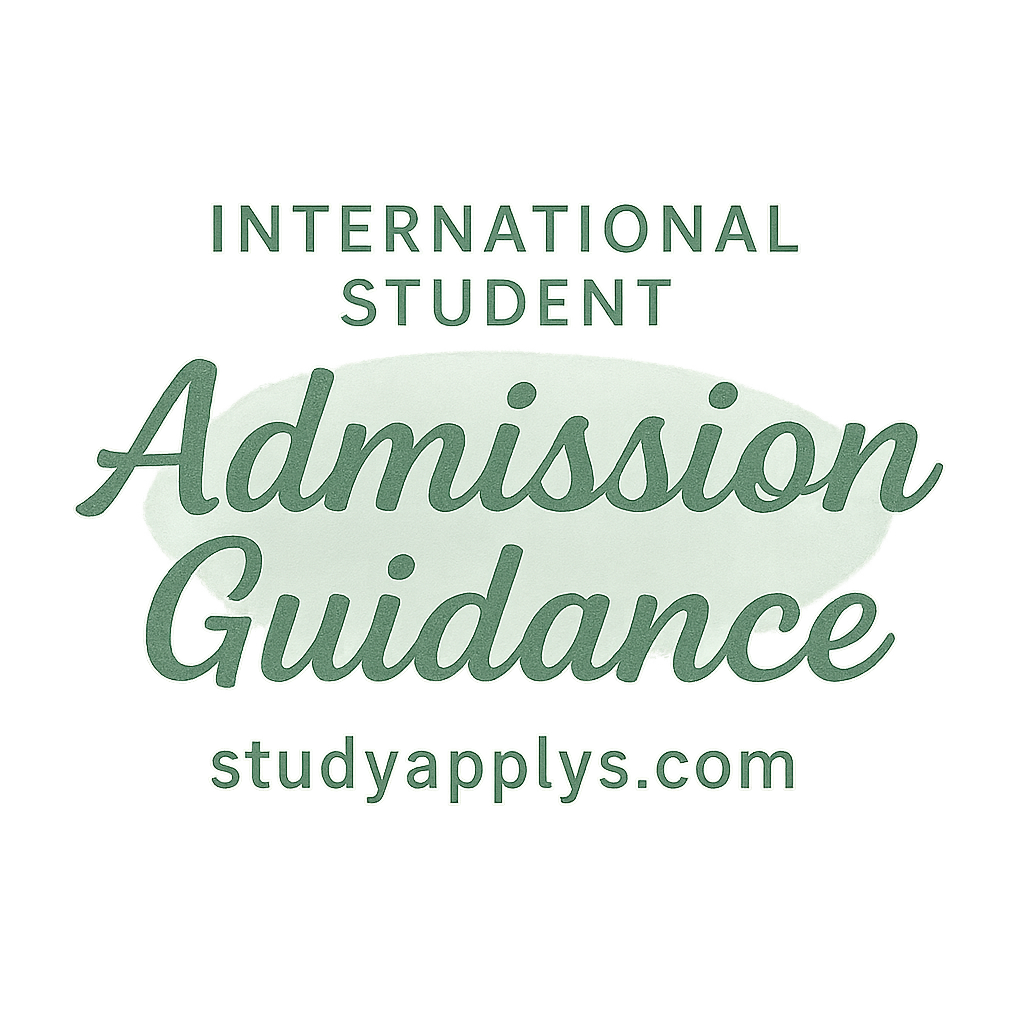Introduction
Dreaming of studying abroad? That’s amazing—but before you can pack your bags and hop on that plane, you’ll need to tackle one critical hurdle: the student visa application.
This process can seem like navigating a maze—paperwork, interviews, exams, and deadlines. But don’t worry! We’re about to break it all down for you. In this article, we’ll share 10 Student Admission Guidance Tips for Visa Application Success that will make the journey smoother, less stressful, and much more manageable.
1. Understand the Student Visa Process Thoroughly
Why Knowing the Visa Process Matters
Before anything else, it’s crucial to understand the visa process inside out. Each country has different rules, requirements, timelines, and procedures.
Knowing these steps early prevents mistakes, missed deadlines, and rejections. Think of it like reading a recipe before you start cooking—you don’t want to realize you’re missing ingredients halfway through.
Trusted Resources to Learn From
You don’t have to figure it all out alone. Start with studyapplys.com/visa-immigration, which offers reliable and updated information on visa requirements by country.
Other helpful internal resources:
- Visa Process Tips
- International Student Guidance
2. Start Your Application Early
Avoiding Deadline Nightmares
One of the best student admission guidance tips is start early. Waiting until the last minute will leave you scrambling and stressed—and stress leads to errors.
University admissions, visa interviews, and test slots fill up quickly. Getting a head start gives you room to breathe.
Planning Ahead for Smooth Transitions
Starting early helps you:
- Handle unexpected delays (like missing documents)
- Book earlier, cheaper flights
- Plan accommodation without stress
Learn more about application preparation and steps to apply.
3. Get Your Documentation Right
Common Documents Required
Getting your visa approved is heavily documentation-based. Here’s what you’ll typically need:
- Passport (valid for at least 6 months beyond your stay)
- Letter of acceptance from a recognized institution
- Proof of funds (bank statements, scholarships, etc.)
- Language proficiency scores
- Visa application forms
- Passport-sized photos
See full documentation requirements here.
Organizing Your Documents Efficiently
Keep digital and physical copies in labeled folders. Consider using cloud backups (Google Drive, Dropbox) to avoid losing essential files during travel.
Bookmark:
- Documentation Guidance
- Credential Evaluation Advice
4. Nail the Language Proficiency Tests
Choose the Right Test: IELTS, TOEFL, or Others
Many universities require proof of English proficiency. Most students take the IELTS or TOEFL, but others like Duolingo or PTE may also be accepted.
Each has a different format, so pick the one that plays to your strengths.
Language Prep Tips That Work
- Take mock tests weekly
- Watch YouTube tutorials
- Practice with a study partner
- Focus on weak sections (writing or speaking, for most students)
Check out the language prep guide and related test tips.
5. Be Strategic with Your Statement of Purpose (SOP)
SOP as Your Personal Brand
Your SOP isn’t just another document—it’s your story. It’s where you explain:
- Why you chose your program
- Your career goals
- How studying abroad fits in
Make it personal, passionate, and purposeful.
Common Mistakes to Avoid
- Using generic templates
- Repeating your resume
- Lying or exaggerating
Need SOP help? Check out application tips and student admission guidance.

6. Seek Professional Student Admission Guidance
Why an Expert Makes a Difference
Let’s face it—this process can be overwhelming. Admission consultants or online platforms can help you:
- Pick the right universities
- Improve your SOP
- Organize documents
- Prepare for interviews
Using Online Guidance Portals
Try trusted platforms like studyapplys.com, which offers tools, blogs, and personalized support.
Don’t miss:
- Study Abroad Advice
- Application Preparation Tips
7. Practice Mock Visa Interviews
What Interviewers Look For
You’ll likely face a short interview with visa officers. They want to assess:
- Your intent to study (not migrate)
- Your financial stability
- Your academic goals
Building Confidence Through Rehearsals
Practice answering common questions:
- Why this university?
- Who is sponsoring your education?
- What will you do after graduation?
Explore mock interview tips to sharpen your edge.
8. Prepare for Credential Evaluation
What Is It and Why It’s Vital
Some universities (especially in the U.S. and Canada) require credential evaluation to assess your transcripts by their local academic standards.
Getting Your Transcripts in Order
Make sure transcripts are:
- Sealed and stamped by your institution
- Translated if in another language
- Sent to an approved evaluation agency
See credential evaluation guidance.
9. Stay Informed About Immigration Laws
Each Country Has Unique Rules
Whether you’re heading to the U.S., UK, Canada, Australia, or Europe, immigration laws differ wildly. Some let you work part-time; others don’t. Some allow post-study work visas, some don’t.
Reliable Immigration Information Sources
Visit the official immigration websites—and stay updated via:
- Visa & Immigration Guide
- Immigration Tag
10. Plan Post-Admission Steps in Advance
What Happens After Visa Approval
Once your visa is approved—congrats! But don’t relax just yet. There’s still:
- Booking flights
- Finding housing
- Registering for orientation
Transitioning to Student Life Abroad
Adjusting to life abroad takes planning. Know what to expect and how to adapt.
Check:
- Post-Admission Steps
- Post Admission Tag
Conclusion
Getting a student visa doesn’t have to be a stressful mystery. By following these 10 Student Admission Guidance Tips for Visa Application Success, you’ll be well-prepared, confident, and ready to take that leap toward your international academic dream.
Stay ahead of deadlines, keep your documents tight, and don’t be afraid to seek help when needed. The road to studying abroad starts with the right plan—and now you’ve got one!
Need help with anything else? The team at StudyApplys.com has your back.
FAQs
1. What’s the first step in a student visa application?
Start by choosing your destination and checking that country’s student visa requirements. Then, prepare your documents and begin applying to universities.
2. Do I need to hire an agent or consultant?
Not necessarily, but it can save you time and help avoid costly mistakes. Platforms like StudyApplys.com offer affordable, reliable alternatives.
3. What language tests are accepted for student visas?
Common ones include IELTS, TOEFL, Duolingo, and PTE. Always confirm with your university and visa office.
4. Can I apply for a visa before I get accepted into a university?
No. You typically need an acceptance letter before you can start the visa application process.
5. How long does the visa process take?
It depends on the country—anywhere from 2 weeks to 2 months. Start early to avoid delays.
6. Do I need to attend a visa interview?
In many cases, yes. Especially for countries like the U.S., UK, and Canada. Practice mock interviews to prepare.
7. What if my visa is denied?
Understand the reason, fix the issue (e.g., documentation, finances), and reapply. You can also seek help from student admission guidance experts.

